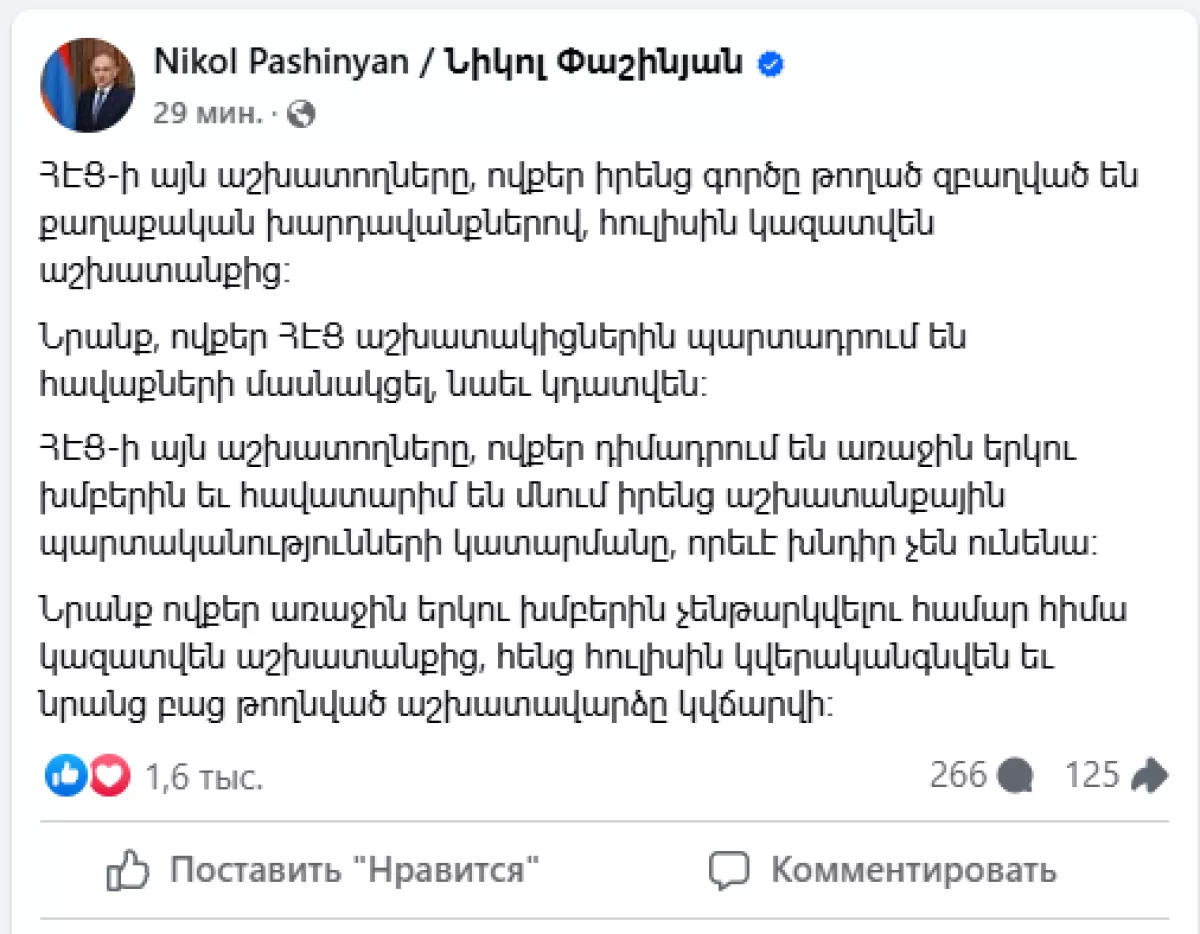Armenian PM moves against employees involved in political intrigue supporting detained oligarch
Armenian Prime Minister Nikol Pashinyan has issued a stern warning to all employees of "Electric Networks of Armenia" CJSC, a company owned by Russian-Armenian oligarch Samvel Karapetyan, threatening to dismiss anyone involved in political intrigues within the firm.
Pashinyan made these remarks on social media, as reported by Caliber.Az.

Earlier, Armenian media noted that the Prime Minister had vowed to take strict action against staff members of "Electric Networks of Armenia" who pressured their colleagues or subordinates to join rallies supporting Karapetyan, the head of the Tashir Group.
“Those who force ENA employees to participate in rallies will also be prosecuted,” Pashinyan declared.
He further clarified that employees who resist such coercion and continue performing their duties will not face any consequences. If dismissed unfairly, these employees would be reinstated in July with back pay.
Samvel Karapetyan, a Russian businessman of Armenian descent, was arrested on June 18. The arrest followed his public criticism of the government’s campaign against the Armenian Apostolic Church, particularly its attacks on Catholicos Garegin II. Pashinyan had accused the Catholicos of violating his vow of celibacy. Karapetyan’s public support for the Church and his warning of intervention “in our own way” if politicians failed to resolve the issue were interpreted by Pashinyan as a challenge to state authority.
The day after Karapetyan’s statements, Armenian law enforcement raided his residence in Yerevan and detained him on charges of “public calls to seize power,” widely viewed as politically motivated. A court ordered his pre-trial detention for two months.
Karapetyan’s legal team, headed by lawyer Armen Feroyan, announced plans to appeal to the European Court of Human Rights, describing the arrest as unlawful. The timing of the detention — just hours after Karapetyan’s defence of the Church — heightened suspicions that the move was retaliatory and linked to ongoing nationalisation efforts.
By Tamilla Hasanova








